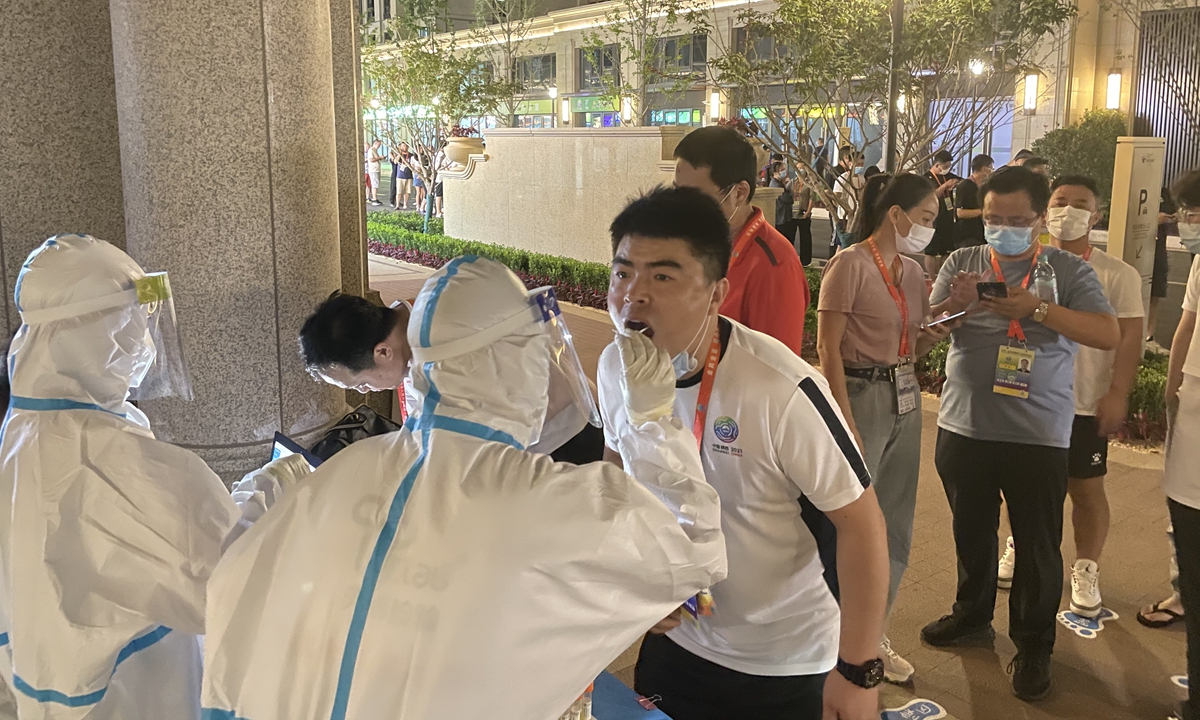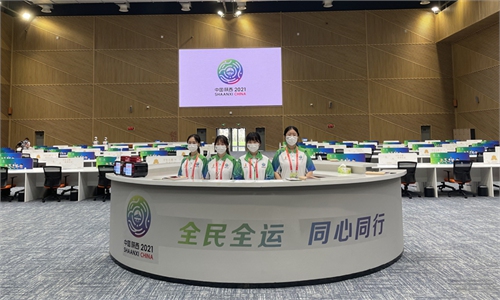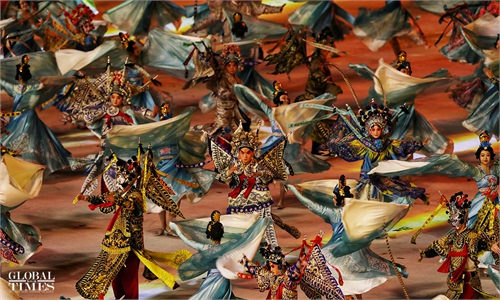
The 14th National Games in Xi'an Photo: Wang Qi/GT
The 14th National Games, which is being held in Shaanxi Province and also the first major sports event in China since the start of the COVID-19 pandemic, has so far maintained a record of "zero infection."
The National Games is expected to serve as a reference for the upcoming 2022 Beijing Winter Olympics.
In an exclusive interview, Ma Guanghui, the deputy director of Shaanxi provincial center for disease prevention and control (Shaanxi CDC), told the Global Times on Thursday that strict prevention strategies are the key for a successful virus-free sports event.
Inter-provincial and inter-departmental cooperation are of vital importance amid COVID-19, he said, adding that although the Shaanxi experience is worth learning from, the requirements for epidemic prevention in the 2022 Beijing Winter Olympics will be higher.
"Shaanxi has tightened prevention and control policies since August 1," Ma said, noting that the host province of the National Games imposed a 21-day quarantine and seven-day home isolation on incoming travelers from overseas, and imposed a 48-hour nucleic acid test on all arrivals.
"Arrivals to Shaanxi from medium-high risk counties will be quarantined for 14 days in designated sites," Ma added.
"People entering residential communities and shopping malls need to scan the QR code, undergo temperature checks with masks on… Many scenic spots in Xi'an remain closed to the public to reduce the number of visitors and ensure the epidemic does not break out in Shaanxi," Ma said.
The games officially opened on September 15 in Xi'an, Northwest China's Shaanxi Province, with 595 events in 54 sports. More than 12,000 athletes, 6,000 delegation officials and 4,200 technical officials participated in the games. More than 46,000 people participated in the opening ceremony, including performers, athletes, spectators, technicians, security, other staff and officials.
As for anti-epidemic measures for the National Games, Ma, who is also the deputy director of health department of National Games Organizing Committee, said they are paying close attention to eight key factors, including preparations before arrival, transportation and movement, in-stadium management, and health monitoring.
Through a mobile phone widget, we can achieve remote management to participants, who are required to show complete vaccination, health monitoring and negative nucleic acid certification 14 days before coming to Shaanxi, Ma said.
We ask National Games participants to take chartered flights or high-speed trains when they come to Shaanxi. After arriving, there are special channels for participants who will undergo a "site-to-site" transportation to National Games Village for closed-loop management, Ma said.
All participants are also asked to report any suspected symptoms, such as fever or loss of taste, he said.
As for the audience, Ma said they are required to provide health monitoring for 14 days prior to the sports event and a 72-hour nucleic acid negative certificate before attending the event. They are also required to wear masks and sit apart.
"When there are medium-high COVID-risk areas in China, we have to keep our highest attendance capacity below 50 percent. If there are no medium-high risk areas, the highest attendance capacity would be 80 percent," Ma said.
Compared with the Tokyo Olympics, which has logged over 430 Olympic-related COVID-19 infections under a state of emergency, Ma said the epidemic prevention in Shaanxi has drawn lessons from Tokyo and strengthened overall measures.
"We have made very specific requirements for different groups, including athletes, technical officials, and media, and distributed prevention and control guidelines to everyone," he said.
During the National Games, Northwest China's Harbin city and East China's Fujian Province both reported a virus surge related to imported cases.
Ma said that foreign delegations to the 2022 Beijing Winter Olympics will further increase the risk of resurgence, so the management of the athletes village should be raised.
In terms of physical isolation measures between spectators and other participants, the National Games in Shaanxi can serve as a reference for the upcoming Beijing Winter Olympics and the Asian Games in Hangzhou in 2022, Ma said.
When it comes to the challenges and difficulties, Ma said that "coordination and communication need a lot of work."
Amid the COVID-19 epidemic, we contacted the joint prevention and control mechanism of the medium-high risk areas and asked them to guide the local sports teams to do training under closed-off management, Ma said.
Ma said that inter-provincial communication plays an important role to a COVID-free sports event. "The General Administration of Sport and the National Health Commission have given us strong support in this regard."




